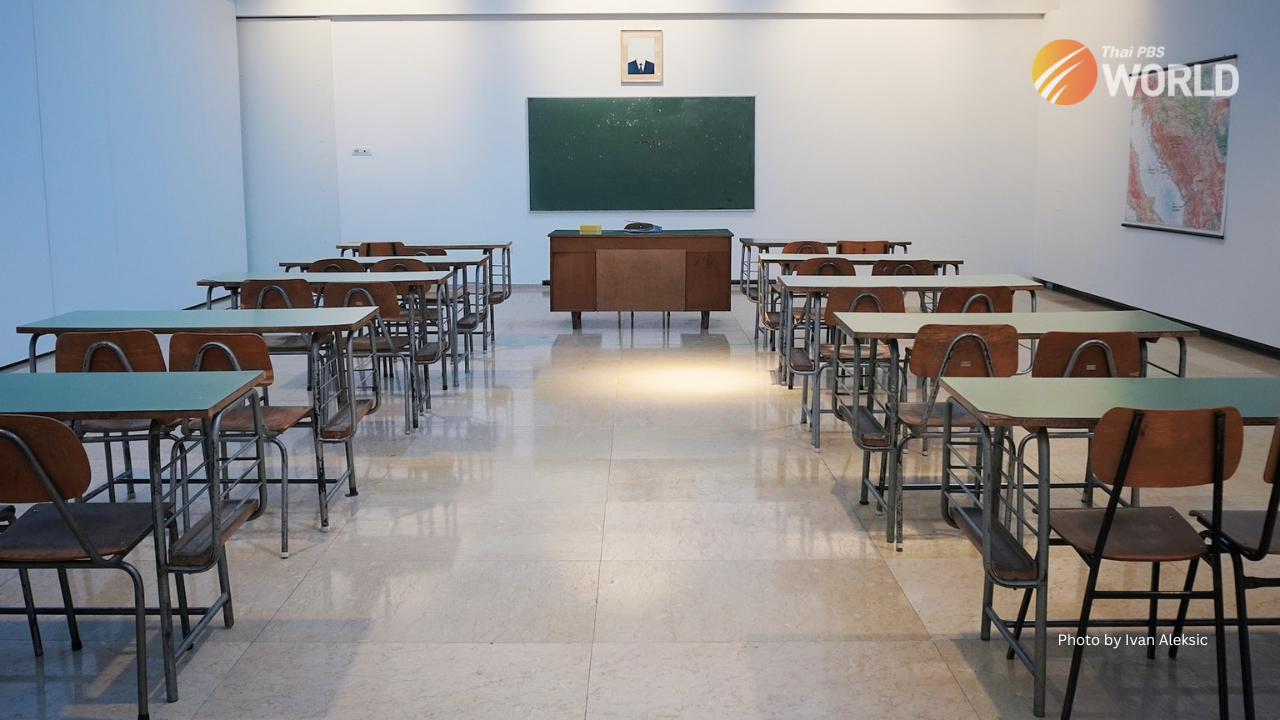Thailand ushers in new education era, but will rich-poor gap close?

Thai education is about to enter a new phase as Parliament prepares to vote on the National Education Bill. Yet experts do not expect the bill and its reforms to bring big improvements for Thailand’s much-criticized education system.
“Once the National Education Bill becomes law, Thailand’s education sector will shift to a new era,” said Dr Sompong Jitradub, an education expert at the Equitable Education Fund (EEF).
The education draft law advocates decentralization and paves the way for schools to have more power over their operations, he said. The idea is to allow them to respond faster and better to the needs and concerns of students, parents and other stakeholders.
The bill will even allow state schools to register themselves as legal entities and operate with greater independence.
Parliament is scheduled to deliberate the bill on January 11 and 12.
Dr Pumsaran Thongliemnak, EEF’s acting director, expects Thailand to have more consistent educational policies once the new law is passed.
“This bill assigns a national committee to monitor the country’s educational sector and drive its education reform. This is a big deal.”
He said that once the bill becomes law, it will empower area-based education and govern the issues of school dropouts and those who opt for informal education.
The Education Bill will also be complemented by three other education-related laws, namely the EEF Bill, the Educational Innovations Bill and the Learning Promotion Bill.
Dim hopes
While Dr Sompong believes the new bill will improve certain aspects of Thai education, he does not think it will catapult the sector up to world-class standards.
“Structurally speaking, Thailand’s educational sector is conservative. Its educational services, therefore, are not in line with global trends that promote global citizenship, democracy, human rights, and environmental awareness,” the prominent educator said.
He pointed out that various measures indicate Thailand is lagging behind on the global stage where education is concerned.
Pumsaran voiced concerns that Thailand would end up becoming like Latin American countries, with the rich enjoying quality schooling and the poor struggling with shabby education, reinforcing inequality.
“I’m worried that Thailand’s education sector is headed in this direction. I can see that more international schools are opening in Thailand to satisfy the demands of the upper-middle class,” he said. “Affluent parents can afford to send their children to prestigious state or international schools. Yet at the same time, there are more small schools in remote areas serving the needs of impoverished children.”
Inequality in Thailand’s education system, Pumsaran said, was exposed during the COVID-19 crisis when many parents lost jobs or income and could no longer afford to pay school fees.
He said the government should allocate more resources to schools based on need rather than merely on the number of students enrolled.
Educational trends
Assoc Prof Dr Wilert Puriwat, who teaches at the Chulalongkorn Business School, said the Thai education sector will soon shift into an offline-online mode whereby students will learn in class, apply this knowledge elsewhere, and return to the classroom to learn more. Education will also move away from a fact/knowledge-based approach to a wisdom/thinking-based approach, he added.
“We will not just focus on academic content, as learners also need life skills and methods to integrate their knowledge from different fields.”
Teachers in class must show their students how to apply their knowledge, or less they would have no place in the future of education, he added.
“Students expect real experiences. They want to find out why it is necessary for them to learn this or that subject and how they can apply the knowledge they have gathered,” he said. “Universities must provide lifeline learning.”
Pumsaran agreed, saying that soft skills along with social and emotional learning are growing trends in the education sector. Many countries in the West have embraced such trends after studies showed that social or emotional skills like empathy and self-control have a big role to play in people’s success as adults.
Pumsaran also said that technological developments like artificial intelligence, big data and virtual reality have an important role to play in supporting learning. The new technology has made possible nano learning, whereby children absorb small, engaging bits of information via video, soundbites and images, reducing the time they need to spend in lessons.
“Traditional ways of teaching will be replaced,” Pumsaran said. “The world has many new things.”
While such trends look promising, Pumsaran is worried that the use of technology may also widen the education gap between rich and poor, given that many poor families cannot afford electronic devices.
“Policymakers should monitor trends and allocate funds in a way that will reduce the gap, not widen it,” he said. “Don’t forget that technology, compatible devices and internet access will have growing importance.”
Pumsaran wants the National Broadcasting and Telecommunications Commission to lower internet fees in remote areas so the gap in quality of learning can be narrowed.
The Education Ministry has listed several other educational trends for 2023. As well as virtual reality, AI and nano-learning, the ministry’s Education Council believes gamification, augmented reality, blockchain mechanisms, and other digital media will play a bigger role in education.
Also expected to become popular are personalized lessons, which focus on the strengths and interests of each student, subscription-based learning and programs focused on STEAM (Science, Technology, Engineering, Arts, and Math).
The Education Council also expects holistic learning, distance and hybrid learning, and an entrepreneurial mindset to play an increasing role in Thai education.
Difficult future for Thai universities
Pumsaran said higher-education institutes in Thailand face growing difficulty in attracting new students due to the falling birth rate and their diminishing appeal to students from countries in the surrounding region.
“Before COVID-19, Thai education institutes were able to attract many students from China, Cambodia, Laos, Vietnam and Myanmar. But during the pandemic, many world-class universities began offering online courses, while employers are now more accepting of new graduates who have completed online courses,” he said. “So, it is becoming more difficult for Thai universities to attract international students.”
He added that youngsters these days are less focused on getting university degrees because many employers are recruiting based on technical rather than academic skills.
“Medium-level universities need to adjust fast or risk going out of business,” he warned.
By Thai PBS World’






